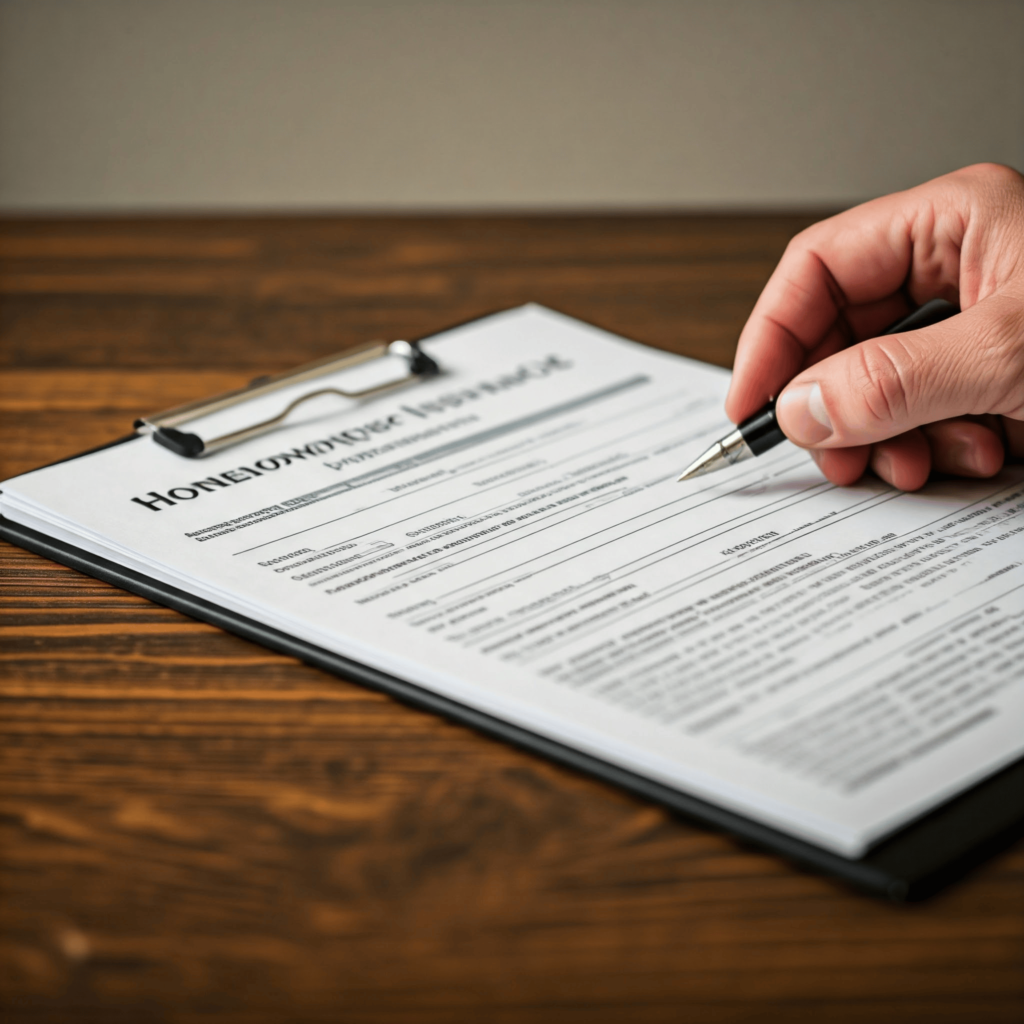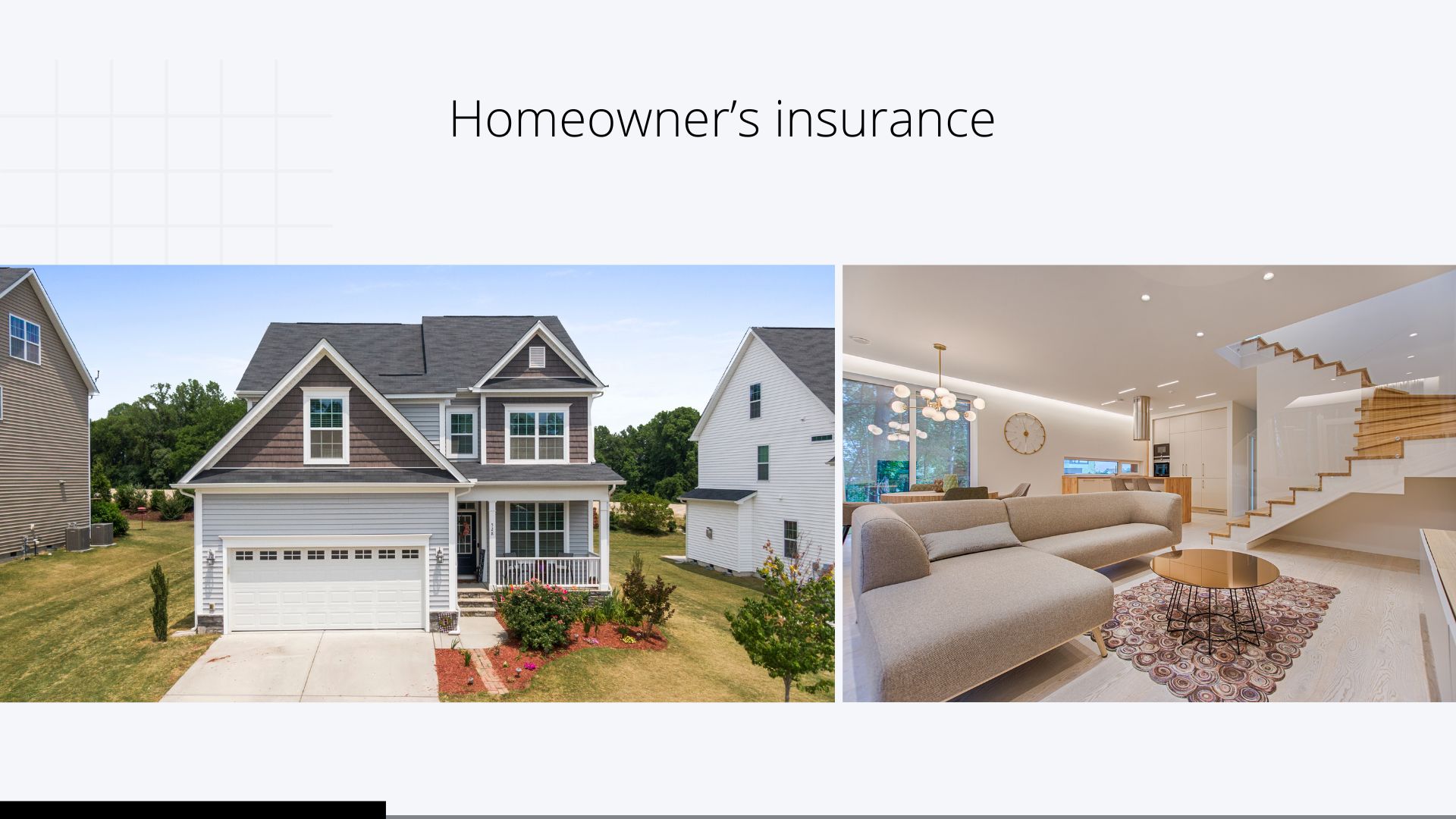The Ultimate Guide to Homeowner Insurance: Protect Your Home and Peace of Mind
Learn everything about homeowner insurance and how it can protect your property. Explore the best coverage options, tips for saving on premiums, and how to choose the right homeowner insurance policy for your needs
Table of Contents

What is Homeowner Insurance?
Homeowner insurance is a comprehensive policy that protects your property, belongings, and liability. It covers damages from fire, theft, vandalism, and more, ensuring you are not financially burdened by unforeseen incidents.
Key Features of Homeowner Insurance
- Property Damage: Covers the repair or rebuilding of your home.
- Personal Belongings: Protection for furniture, appliances, and personal items.
- Liability Coverage: Safeguards against legal claims for accidents on your property.
Why is Homeowner Insurance Important?
1. Protects Your Investment
Your home is one of your most valuable assets. Homeowner insurance ensures it is safeguarded from risks.
2. Offers Peace of Mind
Knowing you are covered during emergencies allows you to focus on recovery.
3. Satisfies Mortgage Requirements
Many lenders require homeowner insurance to secure their loans.
Types of Homeowner Insurance Policies
1. HO-1 Basic Form
Covers specific perils like fire, theft, and vandalism.
2. HO-2 Broad Form
Includes all HO-1 coverages plus additional risks like falling objects and plumbing leaks.
3. HO-3 Special Form
The most common policy, covering all risks except those explicitly excluded.
4. HO-5 Comprehensive Form
Offers the most extensive coverage for both the home and personal belongings.
How to Choose the Right Homeowner Insurance Policy
1. Assess Your Coverage Needs
Consider the value of your home and belongings to determine coverage limits.
2. Compare Quotes
Shop around to find competitive premiums and benefits.
3. Understand Exclusions
Ensure you know what is and isn’t covered in your policy.
4. Consult a Professional
An insurance agent can help tailor a policy to meet your specific needs.
Tips to Save on Homeowner Insurance
- Bundle Policies: Combine your homeowner and auto insurance for discounts.
- Improve Security: Installing alarms and safety features can reduce premiums.
- Increase Your Deductible: Higher deductibles can lower monthly costs.
- Maintain a Good Credit Score: Many insurers offer better rates to customers with good credit.
Common Myths About Homeowner Insurance
1. “Flood Damage is Always Covered.”
Flood coverage is typically not included and requires a separate policy.
2. “All Personal Belongings Are Fully Covered.”
There may be limits on high-value items like jewelry or electronics.
3. “Only Homeowners Need Insurance.”
Renters and landlords also require tailored policies for protection.
FAQS
Certainly! Here are some frequently asked questions (FAQs) about homeowners insurance that you can include in your blog post:
- What does homeowners insurance cover?
- Homeowners insurance typically covers damage to your home and personal belongings from perils such as fire, theft, vandalism, and certain natural disasters. It also provides liability protection and covers additional living expenses if your home becomes uninhabitable.
- What factors determine the cost of homeowners insurance?
- Insurance premiums are influenced by factors like the home’s location, its age and construction type, the coverage limits chosen, deductible amount, the homeowner’s claims history, and sometimes credit score.
- What is the difference between actual cash value and replacement cost coverage?
- Actual cash value coverage pays out for damaged or stolen items based on their depreciated value, while replacement cost coverage reimburses you for the cost to replace items at their current market price without deducting for depreciation.
- Are floods and earthquakes covered by standard homeowners insurance?
- No, floods and earthquakes typically require separate insurance policies or riders. Homeowners in high-risk areas may need to purchase flood insurance through the National Flood Insurance Program (NFIP) or private insurers, and earthquake coverage is usually optional.
- What is personal liability coverage, and why is it important?
- Personal liability coverage protects you if someone is injured on your property or if you accidentally damage someone else’s property. It can cover legal fees, medical bills, and settlements if you’re sued.
- How much homeowners insurance do I need?
- The amount of coverage you need depends on factors like the value of your home and belongings, your financial situation, and any additional risks you want to protect against. It’s wise to review your policy annually to ensure your coverage keeps up with changes in your home’s value and your assets.
- Does homeowners insurance cover home businesses?
- Standard homeowners insurance policies typically provide limited coverage for business equipment and liability related to a home-based business. However, specific business activities or higher-value equipment may require additional coverage or a separate business insurance policy.
- What should I do if I need to file a claim?
- If you need to file a claim, contact your insurance company promptly to report the damage or loss. Document the damage with photos or videos, keep records of any repairs or expenses, and cooperate fully with your insurer during the claims process.
- Can I lower my homeowners insurance premiums?
- Yes, you can often lower premiums by increasing your deductible, bundling your homeowners insurance with other policies like auto insurance, maintaining a good credit score, installing security systems, or making home improvements that reduce risk.
- Is homeowners insurance required by law?
- While homeowners insurance is not required by federal law, mortgage lenders typically require it as a condition of providing a home loan. Even if you own your home outright, insurance is crucial for protecting your investment and financial security.
Including these FAQs in your blog post will help address common concerns and provide valuable information to your readers about homeowners insurance.

